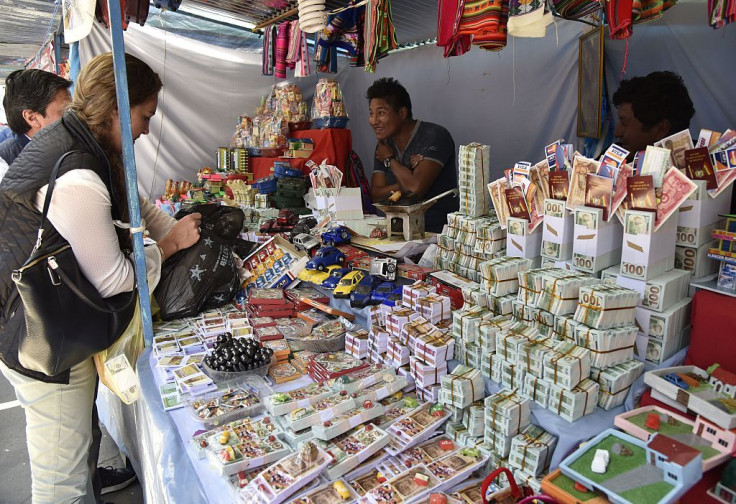
Do you know what everyone’s life long dream is, beyond the shackles of rationalism and logic? It is to just wish for things and voila! You get it- be it a new house, that promotion you have been eyeing for quite some time now, or that coveted designer black dress. Sounds too far-fetched?
And yet this is the theory that is pompously celebrated every year in Bolivia as the festival Alasitas.
What is Alasitas?
Though originally, the festival was called Chhalasita and involved the simple exchange of basic goods, over the years it has transformed with the ‘modern’ times. Every year, the city's Plaza Murillo witnesses a crowd of shopkeepers armed with teeny suitcases stuffed with piles of mini dollars, bolivianos, and euros, little cardboard credit cards, passport, airline tickets, and visas, mobile phones, TVs, cars, trucks- all in miniature forms. You will also find mini-vegetables, tiny crates of beer, thousands of little fake certificates like that of marriage and divorce, degrees, driving licenses, etc.
The festival is celebrated in La Paz every year in January and originates from an indigenous Aymara harvest festival where farmers prayed for bountiful crops. But in this modern-day form of the festival, artisans and street vendors line the pavements, hawking their tiny goods, miniature versions of real-life things.
People buy these items as per their choice and then take their purchase to the priests in order to get it blessed before offering it to Ekeko, the Tiwanakan God of abundance and prosperity.
So, why do Bolivian’s celebrate this eccentric festival every year?
Apart from the fact that it connects modern-day religion with ancient traditions and expertly throws in consumerism in the mix, Alasitas is a symbol of hope that the gods will see transform their miniature purchase into reality and fulfill their dreams. Say, you want a car, a house, or had been hoping to get married, all you have to do is buy a mini-car, a precisely crafted miniature version of a house, or a mini marriage certificate- to put it simply, Alasitas is a festival of small things that signify the big dreams of the people.
© 2025 Latin Times. All rights reserved. Do not reproduce without permission.



